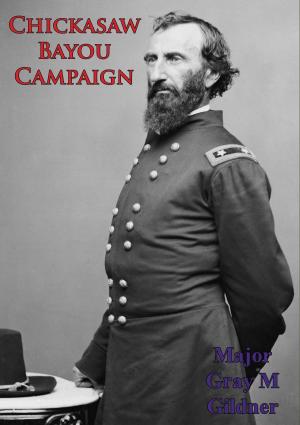Why The North Won The Civil War
Nonfiction, History, Modern, 19th Century, Americas, United States, Civil War Period (1850-1877), Military| Author: | David Herbert Donald | ISBN: | 9781786251985 |
| Publisher: | Golden Springs Publishing | Publication: | November 6, 2015 |
| Imprint: | Golden Springs Publishing | Language: | English |
| Author: | David Herbert Donald |
| ISBN: | 9781786251985 |
| Publisher: | Golden Springs Publishing |
| Publication: | November 6, 2015 |
| Imprint: | Golden Springs Publishing |
| Language: | English |
WHY THE SOUTH LOST
What led to the downfall of the Confederacy? The distinguished professors of history represented in this volume examine the following crucial factors in the South’s defeat:
ECONOMIC—RICHARD N. CURRENT of the University of Wisconsin attributes the victory of the North to fundamental economic superiority so great that the civilian resources of the South were dissipated under the conditions of war.
MILITARY—T. HARRY WILLIAMS of Louisiana State University cites the deficiencies of Confederate strategy and military leadership, evaluating the influence on both sides of Baron Jomini, a 19th-century strategist who stressed position warfare and a rapid tactical offensive.
DIPLOMATIC—NORMAN A. GRAERNER of the University of Illinois holds that the basic reason England and France decided not to intervene on the side of the South was simply that to have done so would have violated the general principle of non-intervention to which they were committed.
SOCIAL—DAVID DONALD of Columbia University offers the intriguing thesis that an excess of Southern democracy killed the Confederacy. From the ordinary man in the ranks to Jefferson Davis himself, too much emphasis was placed on individual freedom and not enough on military discipline.
POLITICAL—DAVID M. POTTER of Stanford University suggests that the deficiencies of President Davis as a civil and military leader turner the balance, and that the South suffered from the lack of a second well-organized political party to force its leadership into competence.
WHY THE SOUTH LOST
What led to the downfall of the Confederacy? The distinguished professors of history represented in this volume examine the following crucial factors in the South’s defeat:
ECONOMIC—RICHARD N. CURRENT of the University of Wisconsin attributes the victory of the North to fundamental economic superiority so great that the civilian resources of the South were dissipated under the conditions of war.
MILITARY—T. HARRY WILLIAMS of Louisiana State University cites the deficiencies of Confederate strategy and military leadership, evaluating the influence on both sides of Baron Jomini, a 19th-century strategist who stressed position warfare and a rapid tactical offensive.
DIPLOMATIC—NORMAN A. GRAERNER of the University of Illinois holds that the basic reason England and France decided not to intervene on the side of the South was simply that to have done so would have violated the general principle of non-intervention to which they were committed.
SOCIAL—DAVID DONALD of Columbia University offers the intriguing thesis that an excess of Southern democracy killed the Confederacy. From the ordinary man in the ranks to Jefferson Davis himself, too much emphasis was placed on individual freedom and not enough on military discipline.
POLITICAL—DAVID M. POTTER of Stanford University suggests that the deficiencies of President Davis as a civil and military leader turner the balance, and that the South suffered from the lack of a second well-organized political party to force its leadership into competence.


![Cover of the book Personal Memoirs Of P. H. Sheridan [Illustrated Edition] by David Herbert Donald](https://www.kuoky.com/images/2014/august/300x300/9781782895411-77h1_300x.jpg)

![Cover of the book The Gettysburg Campaign, June-July 1863 [Illustrated Edition] by David Herbert Donald](https://www.kuoky.com/images/2015/november/300x300/9781786254382-HfLn_300x.jpg)



![Cover of the book Gettysburg Staff Ride: Briefing Book [Illustrated Edition] by David Herbert Donald](https://www.kuoky.com/images/2014/august/300x300/9781782898580-CyUe_300x.jpg)






